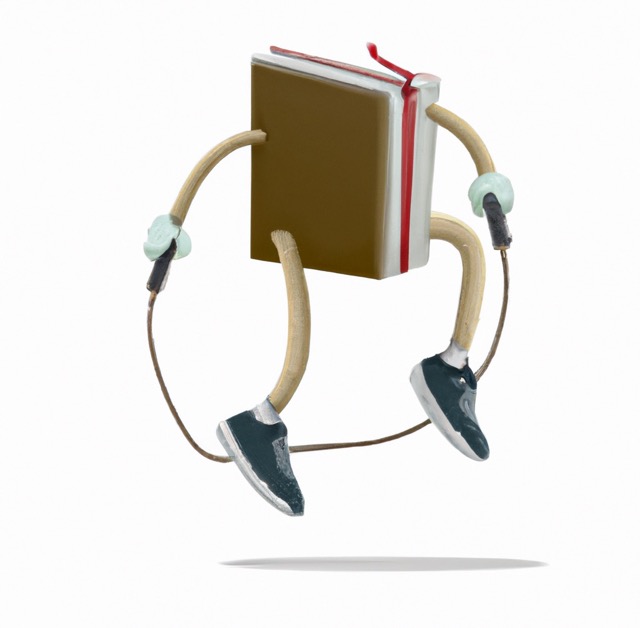How to Stop Skipping Words While Reading


Table of Contents
Imagine racing through a favorite novel, words blurring together, the story unraveling in front of your eyes. Now, imagine suddenly realizing that you've missed crucial details. You've been skipping words without even knowing it. It's not intentional skipping that might happen when you skim; it's a frustrating stumbling block that many readers face.
Some readers may struggle through reading, where every sentence seems laborious and slow. Others, however, find themselves unintentionally skipping words, as if their brain is yearning to read faster, thirsting for more information at once. These readers want to "go fast”. Skipping words has been shown by research to be done automatically by more skilled readers. But on the other hand, many readers notice that they skip words but end up feeling confused by what they read, having to backtrack and re-read and spend more time on the text than they planned.
So what exactly causes this “unproductive” kind of word skipping, and how can you address it? Is it just a quirk of the mind, or is there something more profound at play? This blog post will delve into the potential causes, and explore strategies and solutions to help you master the art of reading without missing a beat.
Potential Causes of Unproductive Word Skipping
Unproductive word skipping that hurts both reading comprehension and speed is an intriguing phenomenon, often perplexing both readers and educators. This challenge is hypothesized to be commonly found in people exhibiting symptoms of ADHD, although it's important to note that you don't need an official diagnosis to experience these symptoms.
- ADHD Connection: ADHD, or Attention Deficit Hyperactivity Disorder, is often linked with higher than average impulsivity and distractibility. These symptoms can translate into a constant sense of motion in the brain, leading to impatience and anxiety while reading or doing anything else in life. This urgency to move on can cause the eyes to jump over words or even whole sentences.
- Impulsivity and Distractibility: Whether it's the allure of a new paragraph or the distraction of a buzzing phone, impulsivity and distractibility can make it hard to focus on reading the words in front of you. The brain seems perpetually in motion, always looking for the next stimulation, making it prone to skip and gloss over text.
- Not Exclusive to ADHD: It's crucial to recognize that these challenges aren't exclusive to those with ADHD. Many people may experience symptoms of hyperactivity and distractibility in their daily lives, particularly in our fast-paced digital age.
Understanding the potential causes of unproductive word skipping is the first step in addressing the problem. Once we grasp why our brains tend to skip over words and leave us confused when we read, we can develop strategies to slow down, fully absorb the text, and truly enjoy the reading experience. And as we saw in the example before, for some people, slowing down a little while reading can actually lead to spending less total time reading and reading at a faster overall rate, because you won’t be re-reading the text as much. As the Navy SEALs say, “Slow is smooth. Smooth is fast.”

In the next section, we'll explore practical strategies and solutions, empowering you to take control of your reading and get what you want out of it.
Strategies and Solutions
Reading should be an adventure, not a struggle. So how can we harness our minds to engage fully with the text and avoid the pitfalls of unproductive word skipping? Here are strategies to guide you on your journey:
- Embrace the Power of a Pacer: Think of your finger, a pen, or a bookmark as your personal reading guide. By following this pacer across the page, you create a rhythm that keeps your eyes from jumping ahead. It's like dancing with the words, each step deliberate and graceful. Try it, and feel the difference.
- Slow Down and Digest: Reading isn't just about consuming words; it's about understanding them. Taking notes, summarizing passages, and asking questions as you go can enrich the experience. Engage with the text, challenge it, and let it challenge you.
- Embrace Mindfulness: The mind wanders, especially if you're prone to anxiety. Mindfulness practices like meditation or yoga can help you find focus. Even something as simple as taking a deep breath before reading and throughout can center your mind and enhance your connection to the words on the page.
- Create a Reading Ritual: Sometimes, the environment and its distractions can play a role in unintentional word skipping. Create a calming reading ritual by choosing a comfortable place, a favorite cup of tea or coffee, or even soft background music. These simple touches can make reading an anticipated event, not a chore.
- Leverage Reading Technology: Tools like SwiftRead offer a dynamic approach to controlling your reading speed, allowing you to read as fast or as slow as you want while still presenting every word. The reading experience is more engaging and less distracting, and you can tailor it to your preferences.
These strategies aren't about "fixing" something that's broken. They're about understanding how your brain might be causing you to read in a way you don’t want to, and then using that understanding to come up with strategies that make your reading experience more enjoyable and fulfilling. Experiment with these and other strategies, mix and match, and find the combinations that work best for you.
Turning the Page: Concluding Thoughts and Next Steps
Unintentional word skipping is more than a mere annoyance; it's a challenge that impacts many readers, particularly those with ADHD or symptoms of it. But understanding the causes – the impulsivity and distractibility – allows us to see the issue not as a hindrance but as a path to improvement.
The techniques we've explored are more than mere tips; they're a roadmap to a richer reading experience. Whether it's using a pacer, embracing mindfulness, or leveraging technology, these strategies can be personalized to your unique reading style.
"Reading is a basic tool in the living of a good life," said Joseph Addison, a renowned satire writer. Let's not let unintentional word skipping stand in the way of such a profound journey.
Read Up To 2-3X Faster, even with ADHD
Try reading with SwiftRead's software for a distraction-less, engaging, and fast-paced reading experience.
Jason, from 🇺🇸:
Absolutely game changing. I have ADHD and it's so hard to get through text. Getting it just "beamed into" my brain with SwiftRead is so much nicer.